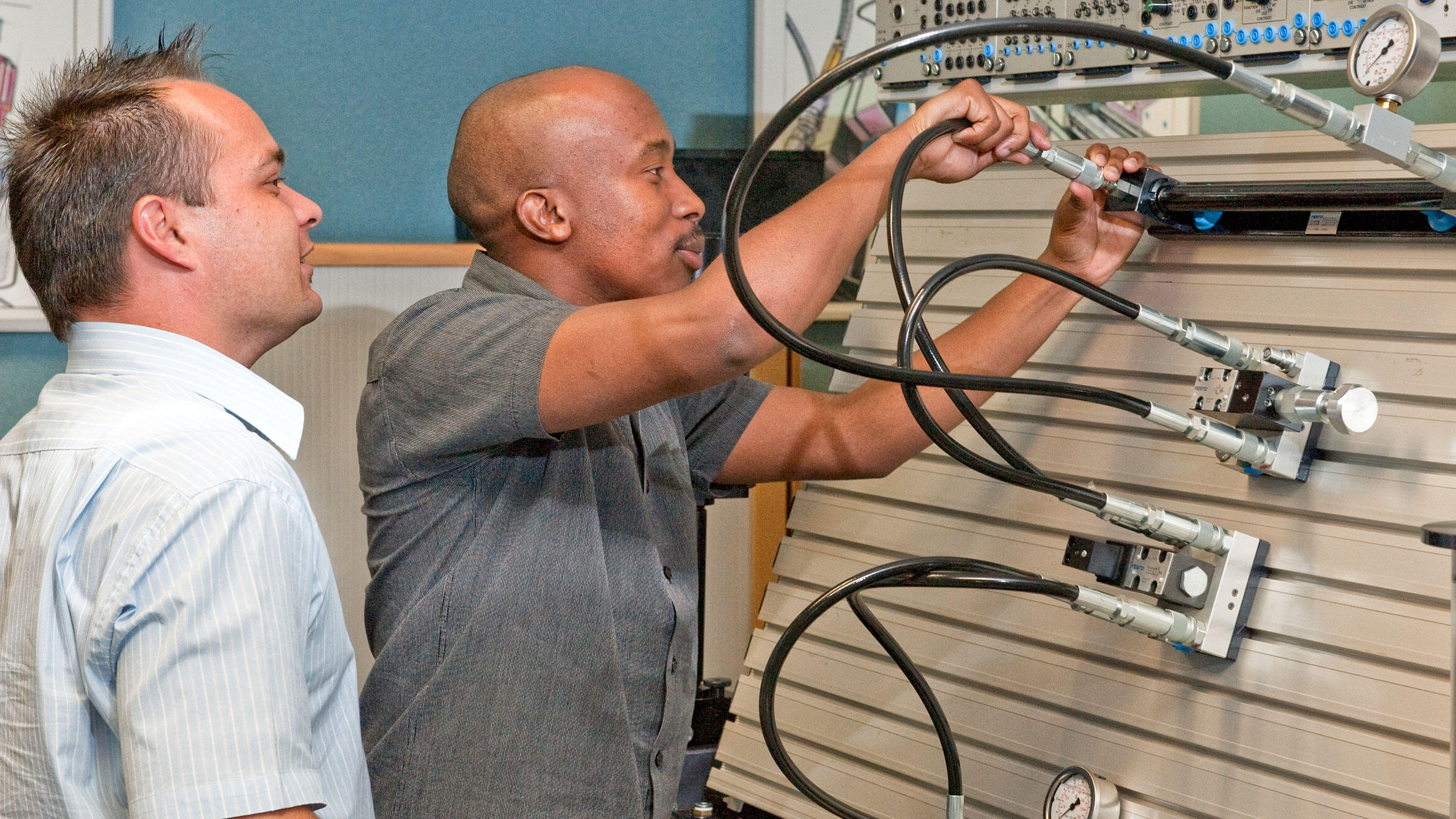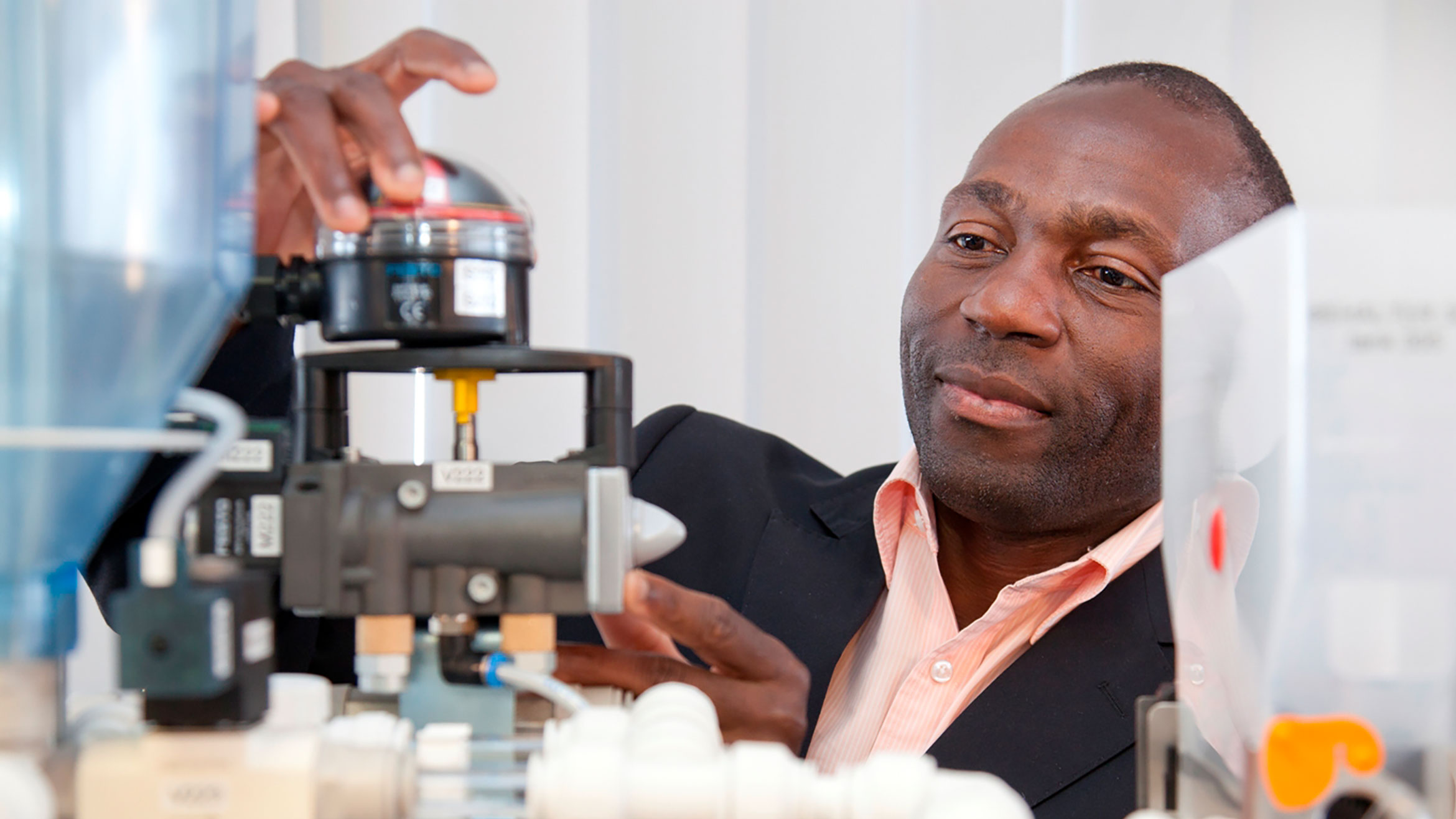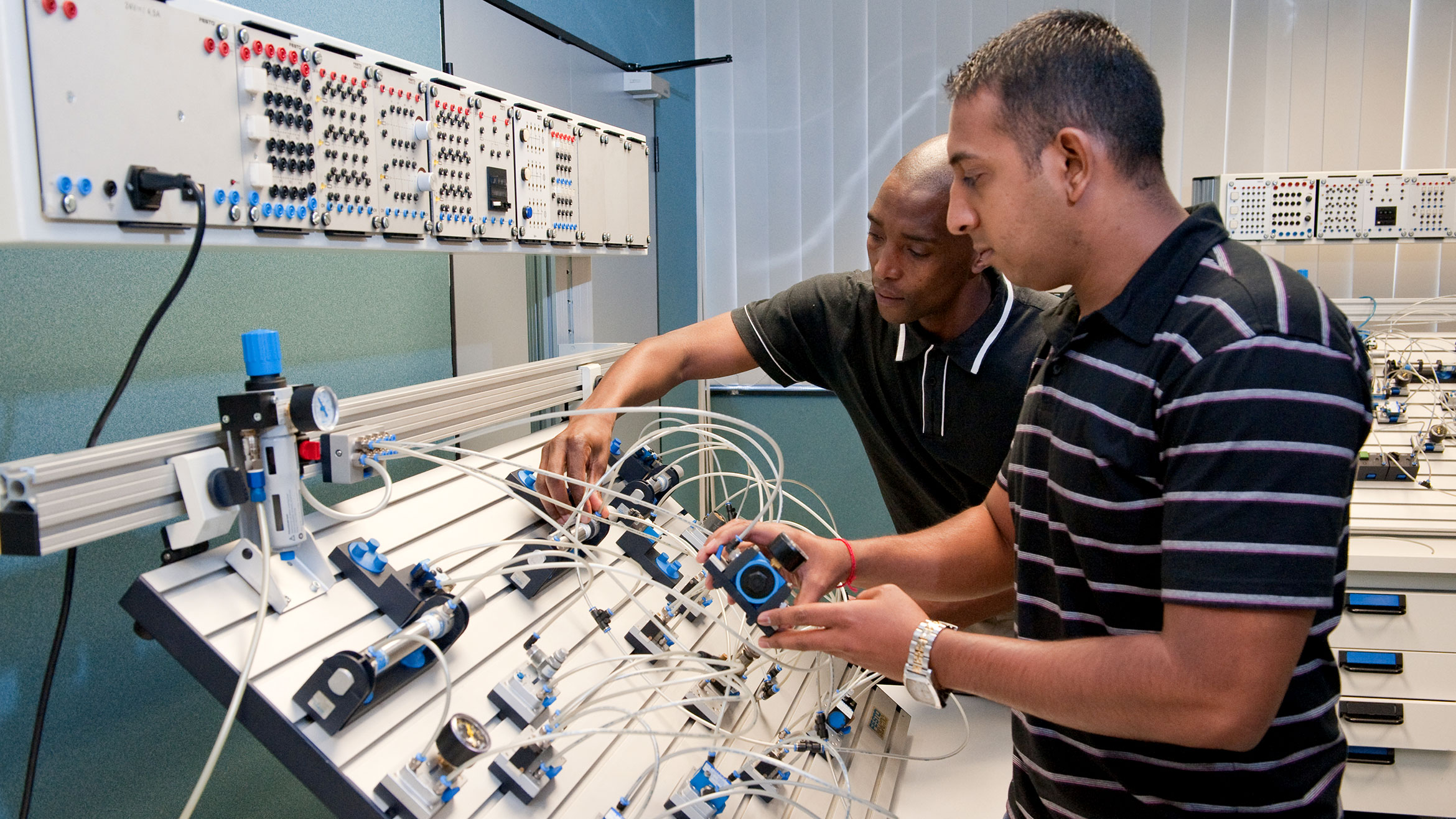New practical learning experiences in South Africa
Festo Didactic • Capacity building for a better water supply

South Africa’s water and waste water sector is troubled by a lack of capacity and performance which has a negative impact on the environment, public health and economic progress. Despite large-scale investments in the water infrastructure by the South African government, the country still faces major challenges in terms of the operation and maintenance of water and waste water treatment plants. Polluted domestic and industrial waste water together with fertilisers used in agriculture can cause severe ecological damage to lakes, rivers and entire eco-regions. The drinking water often fails to comply with quality standards. New investments in training for responsible sectoral staff play a key role in improving the situation. Existing programmes often lack practice-oriented training methodologies and systematic process-oriented designs.
The South African government plans to invest at least three billion Euro for the development of the water infrastructure until 2018. But only skilled staff will justify this investment. According to the South African Department of Water Affairs there is an urgent need for 1,400 technical plant managers, 3,000 engineers and 4,000 technicians to eliminate the most severe deficits in efficient plant operation and the performance of service routines.
In order to address these challenges the Deutsche Gesellschaft für Internationale Zusammenarbeit (GIZ), operating on behalf of the German Federal Ministry for Economic Cooperation and Development (BMZ) started a development partnership with Festo Didactic in 2011, initiating a project to provide staff of water and wastewater treatment plants with practical skills for professionally handling the water processes.
Festo was established in 1925 in Esslingen and has become an industry leader in the field of pneumatic and electric drive engineering and mechatronics for industry and process automation. The automobile, food, textile and packaging industries in particular benefit from the automation systems of Festo. At present, Festo has 16,300 employees at more than 250 branch offices worldwide.
In 1965, Festo founded an affiliate company called Festo Didactic in order to satisfy the high demand of educational institutions for learning systems and of companies for technical education in occupational practice. The range of trainings goes far beyond the implementation of Festo's product range. Festo Didactic employs 500 staff worldwide, 150 of them work in Germany. The company's turnover is 112 million Euro per year; half of the sum is generated in Germany. Even so, Festo Didactic is a global company with activities in 176 countries, operating through 59 country divisions and 40 retailers. The long membership in the iMOVE network has contributed to considerable success as regards the public awareness of Festo Didactic.
Festo Didactic South Africa was established in 1973, at the same time as the business operations of Festo Industrial Automation began in this country. Today, Festo Didactic learning systems are integrated into most vocational and tertiary educational institutions across South Africa. The training courses are attended by over 1,500 participants annually from the country’s leading industries, such as the automotive, food and beverage, packaging, petrochemical and mining sectors. The work of the South African team and its global partners also extends well beyond the borders of the country, comprising the Southern African Development Community (SADC) and East African Community (EAC) regions.
In 2011, the above mentioned project was designed and implemented to address training shortfalls in South Africa. To this end, Festo Didactic and the Institute for Sanitary Engineering, Water Quality and Solid Waste Management at the University of Stuttgart developed training material and a simulator for practical training in the water sector – the EDS (Environmental Discovery System) Water Management. They designed hands-on training systems that allow to experience the key processes of water management. For this purpose the complex system of water supply and sanitation was divided into the logical and easily documentable sub-modules of treatment, cleaning, distribution and monitoring. Praxis-oriented training modules on the operation of pump stations, process automation, plant monitoring and energy-efficient operation were developed for these processes.
Together with the University of Pretoria (UP) and the Water Academy in Knysna (TWA) the training modules were adapted to the requirements of the different target groups: University students, trainees and staff in water and waste water treatment plants. The TWA has adopted the EDS as part of a 50-day training programme for unemployed young people. 117 participants were trained for working in the water sector. The UP has integrated the practical training modules into the syllabus of academic studies. At the WISA conference in Mbombela in May 2014 the results of this project were presented by the project partners, followed by practical workshops that showed best practices of learning with the EDS.
Information
This sucess story was first published in the iMOVE publication Developing Skills for Employability with German Partners • 8 Success Stories from Sub-Saharan Africa. The brochure was published in July 2014.




